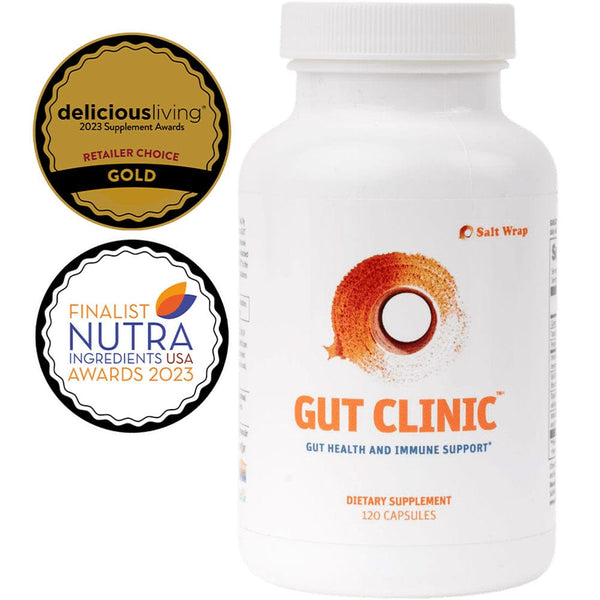Discover the Key to Digestion and Immunity With Gut Health Assistance

Understanding Digestive Tract Wellness
Understanding intestine health is crucial for general health, as it plays a considerable duty in food digestion, immunity, and also psychological health. The digestive tract, making up the stomach tract, is in charge of breaking down food, absorbing nutrients, and expelling waste. A balanced digestive tract setting makes sure reliable food digestion, allowing the body to utilize nutrients successfully.
In addition, gut health substantially affects the immune system. The intestine houses a substantial section of the body's immune cells, and a healthy gut can help ward off virus and lower inflammation. Disturbances in digestive tract health and wellness can cause an overactive immune reaction, potentially adding to autoimmune disorders and allergic reactions.
In addition, the digestive tract is usually referred to as the "2nd mind" because of the gut-brain axis, a complex interaction network linking the intestine and the mind. This link influences mood, cognition, and emotional well-being. Problems such as dysbiosis, identified by a discrepancy in intestine germs, have been connected with psychological health and wellness problems, consisting of anxiousness and anxiety.
The Intestine Microbiome Explained

The digestive tract microbiome, a varied community of microbes residing in the gastrointestinal system, plays a crucial duty in maintaining digestion health and wellness and overall health. Making up trillions of microorganisms, viruses, fungis, and various other microorganisms, this facility ecosystem help in the digestion of food, the synthesis of vital nutrients, and the regulation of metabolic procedures.
Each person's digestive tract microbiome is distinct, influenced by factors such as diet plan, way of living, genetics, and environmental direct exposures. A well balanced microbiome supports ideal food digestion by breaking down facility carbohydrates, creating short-chain fatty acids, and facilitating the absorption of nutrients. Alternatively, an imbalance, usually described as dysbiosis, can bring about digestive conditions, consisting of irritable bowel syndrome (IBS) and inflammatory bowel illness (IBD)
Study has actually demonstrated that a varied microbiome is connected with better wellness results, highlighting the significance of nutritional selections in nurturing these microbes. Foods abundant in fiber, probiotics, and prebiotics, such as fruits, vegetables, and fermented items, can promote a healthy microbiome. Recognizing the intestine microbiome is crucial for establishing targeted interventions focused on enhancing gastrointestinal health and stopping stomach conditions.

Connection Between Food Digestion and Resistance
A robust connection exists between digestion and immunity, highlighting the essential role of the intestine in maintaining overall health and wellness. The intestinal system is home to trillions of microbes that develop the gut microbiome, which dramatically influences both immune actions and digestive system processes. This complicated ecological community aids in breaking down food, taking in nutrients, and providing vital metabolites that sustain immune feature.
When food digestion is reliable, the digestive tract barrier continues to be undamaged, stopping hazardous virus from going into the bloodstream (gut health supplement). Alternatively, bad food digestion can cause an imbalance in the microbiome, resulting in dysbiosis, which has been linked to numerous health and wellness problems, including inflammatory conditions and autoimmune illness. Around 70% of the immune system resides in the gut-associated lymphoid cells (GALT), which communicates carefully with the gut microbiome. This interplay ensures that the body immune system can properly identify between unsafe and valuable compounds.
Tips for Sustaining Intestine Wellness
Supporting gut health and wellness is crucial for preserving both gastrointestinal effectiveness and a well-functioning immune system. To foster ideal digestive tract health, think about integrating a number of sensible approaches into your daily regimen.
First, prioritize hydration. Drinking adequate water supports digestion and helps preserve the mucosal lining of the intestinal tracts. Furthermore, routine physical task can boost digestive tract mobility and advertise a varied microbiome.
Conscious eating methods are also necessary. Chewing food completely and consuming slowly can aid digestion and stop over-eating, which might emphasize the digestive tract. In addition, managing stress through techniques such as reflection, yoga exercise, or deep-breathing workouts can favorably influence digestive tract wellness, as stress and anxiety is understood to disrupt digestion procedures.
Including prebiotics and probiotics into your program is another efficient strategy. While certain foods will be reviewed later on, comprehending the relevance of these elements is essential. Prebiotics work as food for advantageous intestine germs, while probiotics present online helpful organisms.
Last but not least, stay clear of too much use of prescription antibiotics, as they can disrupt the equilibrium of gut plants. By complying with these ideas, you can considerably contribute to the maintenance of a healthy and balanced gut, which is vital for general health and vitality.
Foods That Promote Intestine Health

Fermented foods, such as yogurt, sauerkraut, kefir, and kimchi, are abundant in probiotics, which are beneficial microorganisms that support gut flora and improve digestion. These foods can assist recover equilibrium in the gut, particularly after antibiotic use or digestive system disruptions.
Along with fermented options, prebiotic foods, such as garlic, onions, asparagus, and bananas, his comment is here offer as sustenance for these probiotics, promoting their development and task. These soluble fibers sustain intestine mobility and can minimize issues like bowel irregularity.
In addition, including high-fiber foods, including whole grains, vegetables, fruits, and vegetables, is crucial for preserving more info here a healthy digestive tract. Fiber help in routine defecation and helps protect against digestion disorders.
Finally, omega-3 fatty acids discovered in fatty fish, flaxseeds, and walnuts have anti-inflammatory residential properties that can better support digestive tract health. Stressing these foods in your diet can lead to a robust digestive system and boosted immune feature.
Conclusion
To conclude, prioritizing digestive tract health and wellness is crucial for enhancing food digestion and boosting resistance. A balanced intestine microbiome, affected by nutritional selections and way of living elements, plays a vital duty in nutrient absorption and swelling decrease. Integrating fermented foods, prebiotics, and high-fiber choices, together with proper hydration and tension management, can significantly promote intestine wellness. By embracing these techniques, people can sustain general health and vitality, opening the possible benefits of a well-functioning stomach system.
Recognizing gut health is vital for overall wellness, as it plays a significant function in food digestion, resistance, and even mental health. The intestine houses a significant part of the body's immune cells, and a healthy and balanced gut can aid fend off virus and lower swelling.In addition, the gut is often referred to as the "2nd brain" due to the gut-brain axis, go to my site an intricate interaction network connecting the brain and the digestive tract.A durable link exists in between food digestion and immunity, highlighting the crucial role of the gut in keeping general wellness.In verdict, prioritizing gut health is vital for maximizing food digestion and enhancing resistance.
Comments on “Finding a Gut Health Supplement That Works: Your Guide to Better Digestion”